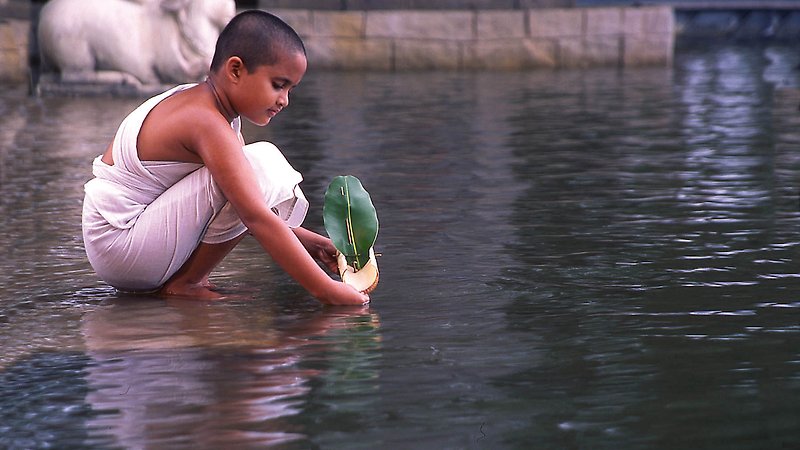Indian filmmaker Deepa Mehta's third (after Earth and Fire) and most powerful chapter in her visually opulent, dramatic trilogy of female empowerment.

As intelligent as it is ravishing, Deepa Mehta’s Water is a moving portrayal of impossible love and possible hope.
Screened as part of NZIFF 2006
Water 2005
Set in 1938 Colonial India, Water follows Earth and Fire to complete Deepa Mehta’s visually opulent dramatic trilogy of female empowerment. It begins when Chuyia, a child-widow, is sent to an ashram where Hindu widows must live in penitence. Ranging in age from 18 to 80, with their heads shaven and wearing only coarse white saris, these women subsist on one daily meal, begging and praying while they patiently wait for death. The arrival of the indefatigable Chuyia, who will not readily submit to her fate, immediately impacts the lives of the other residents.
“Production on the third and most powerful chapter of Indian filmmaker Deepa Mehta’s ‘Elements’ trilogy was delayed for years by religious fundamentalists who staged demonstrations, torched the filmmaker’s sets, and threatened her life. But she was not to be thwarted. This work of gorgeous fury, about the virtual imprisonment of millions of Hindu widows in the years before independence, transforms Mehta’s feminist rage into an eloquent testament to the hunger for freedom. Her heroines, an eight-year-old widow called Chuyia (played by Sarala, a child chosen from a village in Sri Lanka) and a beautiful woman in her twenties (Lisa Ray), come to embody the spirit of the time when the great liberationist Mahatma Gandhi was on the rise, but the old repressions were still very much in force.” — Bill Gallo, Village Voice
“The film has serious, challenging things to say about the crushing of women by atrophied religious and social dogmas, but, to its great credit, it tells its story from inside its characters, rounding out the human drama of their lives, and unforgettably touching the heart.” — Salman Rushdie